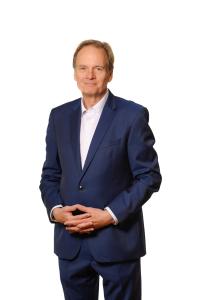The conference, supported by KAS Media Africa started with a discussion on “The Campus Radio Question” moderated by Shoeshoe Qhu (VoW FM Station Manager). The session included various station managers who emphasized the role of community radio stations in educating and informing the public about social issues such as mental health, GBV, and alcoholism.
Opportunities ahead
From podcasts to social media, radio stations face increasing competition due to the transformation of the audio landscape. For Ian Plaatjies (Chief Operating Officer at SABC, South Africa), these transformations constitute “an opportunity, not a threat”, and audio content creators can benefit from the increasing reach of digital radios.
After the success of #RDA2020’s The Future is Female, media practioner Claire Mawisa was invited for another instalment. Along with a panel of media professionals, she discussed the underrepresentation and the challenges they, as women, had to overcome in a male dominated industry.
In his masterclass, digital content strategist Jon Savage offered some insights on the commercial opportunities of podcasting. Savage also highlighted that podcasting “is about the value you can bring to your audience”.
Radio is a mass-market medium, and with over 100 million Swahili speakers in Africa, it plays a massive role among the Swahili population. The conference held its first session in Swahili, inviting practitioners from Kenya, Tanzania and Uganda to share thoughts and ideas behind some of the most successful Swahili radio stations.
Radio in Crisis Situation
Radio is a powerful and trusted source of information that reaches even the most remote communities. For Bob Rugurika (Radio Publique Africaine, Burundi), in time of crisis, the role of the radio is to respond and inform the audiences in real time. Radio stations are often under pressure in situations of conflict, yet it remains their duty to report accurately in the most difficult situations. Many journalists have lost their livelihood as a result of the conflict in Burundi. “Every journalist still has a passion to continue” said Rugurika. “Some are living without jobs, but they still want to collaborate with those media entities that are still in operation”.
Despite the changing audio consumption environment, radio remains a popular medium. Throughout the conference, the panels explored the avenues for innovation and the relevance of radio in the web of information.
With the rise of multiple platforms, presenters often have to become more than the voice of the radio. As they become the face of their shows, presenters have to acquire various skills such as marketing and social media communication. The conference finished off with a discussion on how presenters can adapt to the new roles they have to take and the skills necessary to succeed in the multiplatform environment.
All #RDA2021 sessions are available here.



